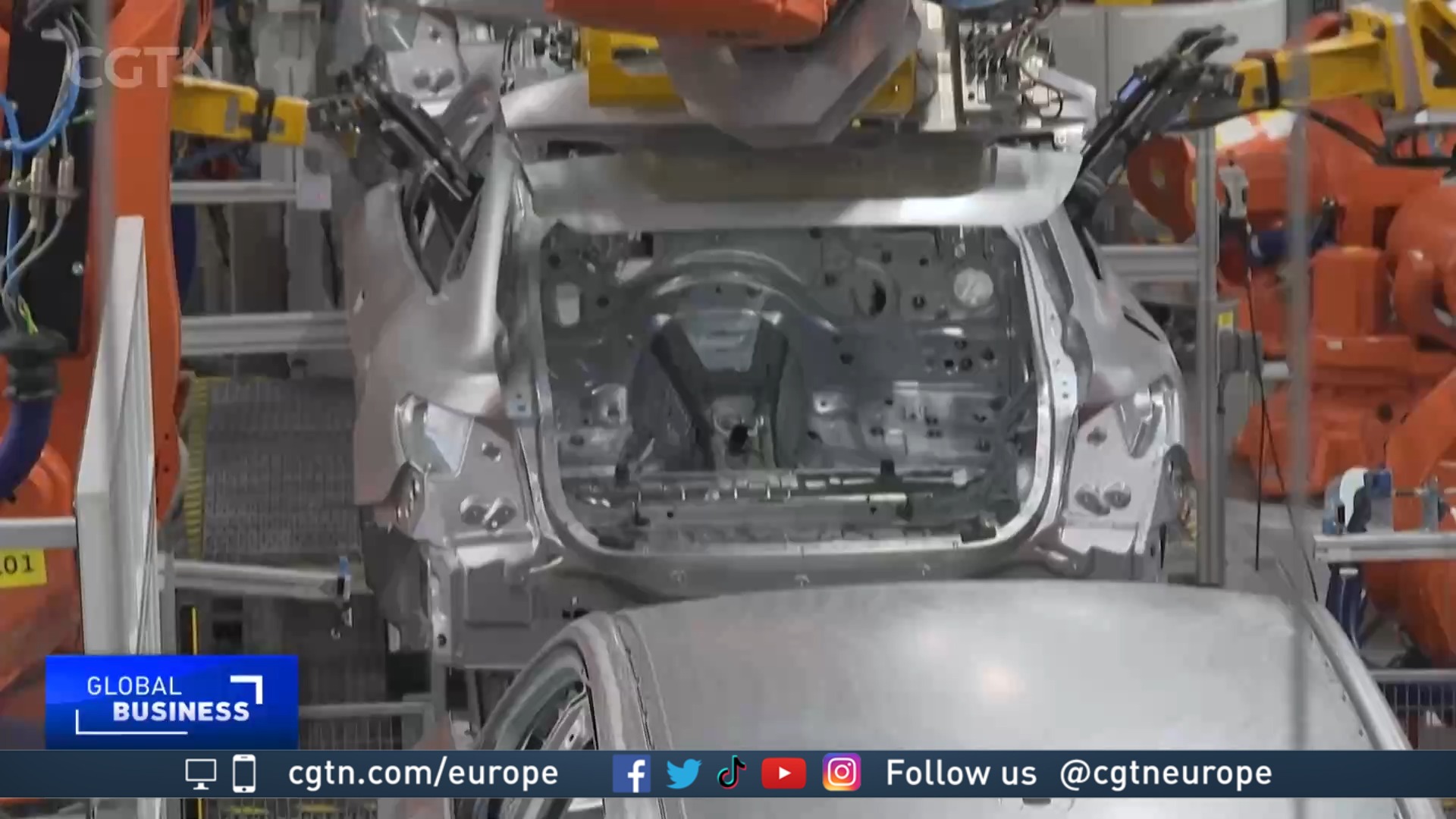03:17

One of the European Union's most challenging hurdles in becoming climate neutral by 2050 has been carbon dioxide emissions produced by the transportation sector. Currently, cars contribute 12 percent of the EU bloc's carbon dioxide, while other modes of transportation such as airplanes contribute a further 12 percent.
This is why last October the European Parliament and European Council reached a provisional deal that would ban the sale of new combustion engine vehicles from 2035, in an effort to cut their pollutants. Everyone seemed to be on board – all that was left was for the individual countries to ratify it.
READ MORE
Greek police investigate officer who opened fire
Village basketball tournament goes viral
One in every six adults experience infertility
However, when Germany's three-party coalition government took a closer look, its junior partner – the business-friendly FDP – pushed for a different approach.

Cars contribute 12% of the EU bloc’s carbon dioxide. /CGTN
Cars contribute 12% of the EU bloc’s carbon dioxide. /CGTN
Speaking to CGTN, expert Stefan Bratzel explains that the FDP "advocated in the coalition negotiations that (combustion engine) vehicles that use e-fuels should still be allowed."
"The FDP just want to ensure so-called technology neutrality," continues Bratzel, the founder and director of Germany's Center of Automotive Management. "That's why they resisted a general ban on combustion engines and wanted to introduce this addition of e-fuels into law."
Germany's thriving automotive industry, which brings in close to half a trillion dollars annually, is still heavily dependent on the production of combustion engine vehicles. An outright ban on them would almost certainly hurt the industry. Germany argued for the continuation of petrol and diesel vehicles past 2035 providing they use what are known as e-fuels.

A provisional deal wanted to ban combustion engines by 2035 and encourage the use of electric vehicles in Germany. /CGTN
A provisional deal wanted to ban combustion engines by 2035 and encourage the use of electric vehicles in Germany. /CGTN
"You can't really compare e-fuels to traditional fuels, the fuel production is completely different," says Peter Pfeffer, an automotive engineering professor from Munich's University of Applied Sciences.
"E-fuels are produced by green energies and therefore in the balance they have no CO2 emissions. You can really use it as conventional fuel. You will not notice any difference from the customer point of view."
However, Pfeffer says that while only small modifications are required to old combustion engines to operate on this synthetic fuel, the real challenge is the price because the energy costs are so high in Europe.

Combustion engines still dominate Europe's roads. /CGTN
Combustion engines still dominate Europe's roads. /CGTN
In addition, says Bratzel, the production of e-fuels is very energy-intensive. "A large amount of energy is required," he explains. "That means that very large plants must be built, which then produce these synthetic fuels or e-fuels with large amounts of renewable electricity i.e. wind turbines, or photovoltaic systems, which run frequently."
The cost of these e-fuels may drive more sales of fully electric vehicles, but Pfeffer says EVs, which need regular charging, simply cannot yet replace combustion engines everywhere.
"You have to also think about the trucks that drive long distances or the agricultural machines and the construction machines," he says. "All these kinds of machines need also a lot of energy and the traditional diesel engine is a very efficient way to power them."
Subscribe to Storyboard: A weekly newsletter bringing you the best of CGTN every Friday